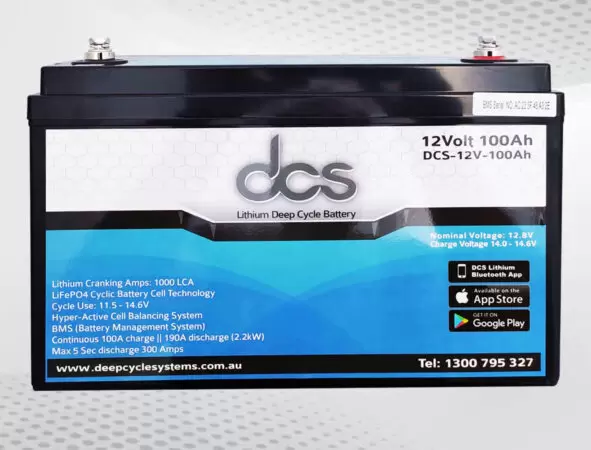When you start your vehicle, the cranking battery is the one that serves as a power source for all electrical systems in your vehicle. The cranking battery usually has less than 30 amp hours of power, which is enough to start an engine but not enough for long-term use. The earlier types of cranking batteries involve lead-acid batteries and AGM batteries; however, the Lithium cranking batteries are state of the art, and you can use them as dual-purpose battery as well.
Quality Build Material of Lithium Batteries
The lithium battery is a high-quality battery. The lithium battery is made of high-quality materials. The lithium iron phosphate battery and high-quality materials are the best choices for you.
The lifespan of Cranking Batteries
Cranking batteries typically need to be replaced every 1-3 years, depending on how well they are cared for. Your battery will last longer if you take good care of it. Depending on the build type and how well it has been maintained, you should replace your battery every 1-3 years. The quality of your battery can be determined by the number of times that you have to crank the engine before starting it. A cranking battery is one that provides enough power to start an engine without any assistance from another source. A poorly maintained or new car may require two or three attempts before starting; however, if your vehicle has been well cared for and driven gently, only one attempt should be required in most cases.
The cranking battery is the one that runs when the engine is started with a key. When you turn your car on, power flows from the cranking battery to your starter motor, which starts your engine. Once it’s running, all of your electrical components and accessories (including power steering) will be powered by other batteries in your car’s electrical system.
Best Replacement for SLI Batteries
Lithium Cranking Batteries are a great option for those looking to replace their lead-acid starter battery. Lithium batteries are more energy dense, compact, and durable than lead acid batteries. The most important reason to choose a lithium cranking battery over a traditional starter battery is that it will last longer. For example, if you have a classic car that’s more than three decades old and you need to replace its original starter battery, then choosing lithium may be beneficial because these types of vehicles tend to be very heavy on their starters due to regular use by their owners throughout the year—and this constant wear-and-tear reduce life spans compared with lighter duty applications such as motorcycles or lawn tractors (which only start occasionally).
Power your boat with Lithium Marine Battery
The technology and innovation of lithium batteries are the future of power storage. Not only are they lightweight, compact, and long-lasting, but they are also not susceptible to any corrosion or degradation. Lithium marine batteries can be used in any application because they are compatible with a wide range of temperature conditions.
Lithium vs Lead Acid
Lithium-ion batteries are more efficient than lead acid batteries. They have a lower self-discharge rate, which means that they can store energy for longer periods of time. This also has the added benefit of reducing your battery’s need for maintenance.
Lead acid batteries are heavier than lithium-ion batteries, but not by much (only about 1/3 as heavy). They have a longer lifespan than lithium-ion batteries – up to 3 times longer in some cases!

The Superiority of Lithium Batteries
Lithium batteries are a great way to power your boat. They have many advantages over lead acid batteries, such as longer use and faster recharging times. Lithium batteries are rechargeable, which makes them more environmentally friendly than lead acid batteries. In addition, they’re smaller and lighter than comparable lead acid units.
Why is Lithium Marine Battery our choice?
Lithium Marine Battery is the best choice for powering your boat. Here are five reasons why we feel that way:
- The lithium battery has a longer life span than lead acid batteries, which can last up to three times as long as conventional batteries.
- They are lighter and smaller than lead acid batteries, with up to 50% less weight and volume than conventional technology.
- Lithium batteries have higher specific energy capacities (energy per unit weight) compared to other types of batteries or even other types of lithium-ion cells themselves, making them more efficient at storing energy in a given size or mass of material than any other type of rechargeable battery currently available on the market today (except for ultra-capacitors).
12V Lithium Batteries
12V Lithium Marine Batteries are typically used in starter motors and other low-power applications such as marine electronics and LED lighting systems. The main advantage of using a 12V lithium battery over lead acid equivalents is its ability to be recharged at lower temperatures than lead acid batteries. It also has no memory effect, so it can be charged more often without affecting its performance or lifespan (though this does depend on whether there are other components installed). However, because they do not provide much power per unit weight compared with bigger units (and therefore cost more), they are not ideal if you need high loads like trolling motors or winches, etcetera.
Conclusion
In conclusion, we are confident that the lithium iron phosphate battery is an excellent choice to power your vehicle or boat. It is more powerful than other types of batteries, more efficient, and lasts longer than many other types of car batteries on the market today. With so many benefits and only one drawback (the price), it’s hard to argue against using lithium iron phosphate as an alternative or replacement for other types of batteries. Contact Deep Cycle Systems if you want to get LiFePo4 Cranking Batteries for cars and boats in Australia.



